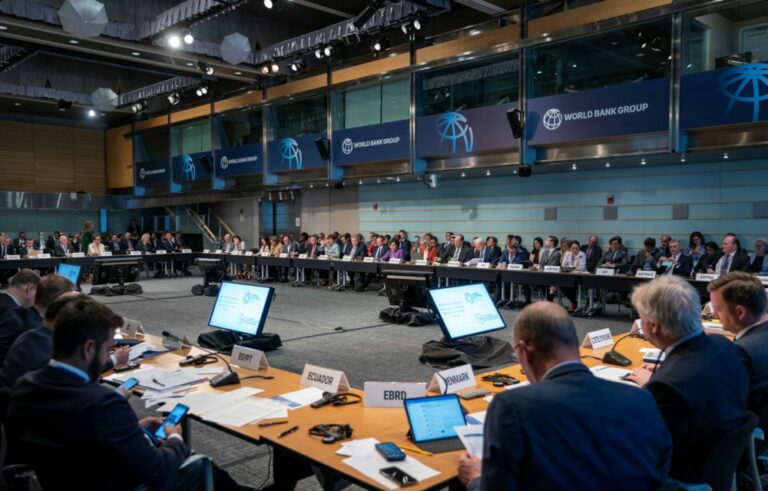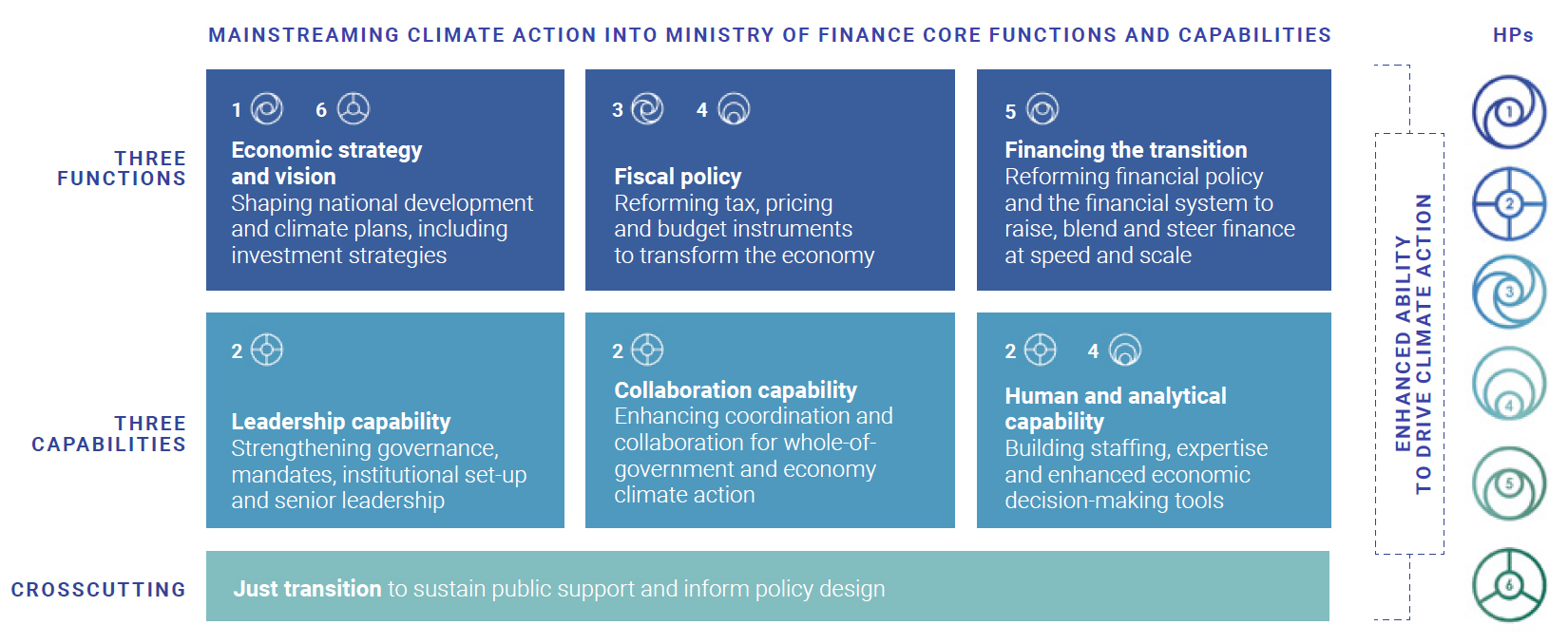Strengthening the role of Ministries of Finance in driving climate action: summary brief

Downloads
This 8-page brief (plus appendix table) summarises a full-length guide that aims to raise awareness among Finance Ministers about the actions and opportunities available to them for mainstreaming climate action.
It is also available in Arabic, Chinese, French, Bahasa Indonesian and Spanish via the downloads above.
The brief:
- Outlines why the role of Ministries of Finance matters for climate action and economic transformation
- Presents a Ministry of Finance framework for climate action (see Figure 1 below)
- Describes 15 priorities for action for Ministries of Finance
- Summarises how Ministries of Finance can make tangible progress on climate
- Describes implementation support from the Coalition of Finance Ministers
- Presents examples of good practice by Ministries of Finance (appendix)
Key messages for Finance Ministers and policymakers
- Ministries of Finance have significant levers they can pull to accelerate the climate action needed to deliver on the goals of the Paris Agreement and drive sustainable, inclusive and resilient development and growth—but these levers are not yet being fully utilized.
- Bold climate action can be instrumental in helping Ministries of Finance achieve their core priorities of macroeconomic stability, growth and responsible management of public finances, with major benefits including:
- tackling escalating risks that have macro-critical consequences, including economic and budgetary shocks, and rising cost of capital;
- enhancing economic and financial resilience;
- generating significant growth and development opportunities including jobs and investment; and
- delivering clean, secure and affordable energy and food.
- Ministries of Finance have a window of opportunity to mainstream climate action within their core functions of economic strategy, fiscal and financial policy. This will involve broad-ranging changes to strengthen governance and leadership, coordination and human and analytical capabilities. Figure 1 shows a framework for action.
- A big part of the role of Finance Ministers is contributing to and supporting climate action by other government departments and other stakeholders. To help Finance Ministers fully utilize the tools at their disposal, their role in driving climate action could be further strengthened and recognized through their mandates and climate governance arrangements.
- Ministries of Finance have the experience to be the strong leaders the moment demands, with many demonstrating visionary leadership and progress. Urgent and comprehensive action is needed to take this work further, and this report sets out a framework to guide this process.
Taking forward the priority actions will be critical to implementing the Helsinki Principles. The Coalition of Finance Ministers for Climate Action has been created to support its members to do this.
Figure 1. A Ministry of Finance framework for climate action

Report preparation
The guide on which this brief is based has been shaped by nearly 30 Ministries of Finance, more than 30 experts and partners of the Coalition of Finance Ministers for Climate Action, and 40 submissions from the private and non-governmental sectors to a global public consultation on an early draft. All Members of the Coalition had the opportunity to review the guide. It is a Helsinki 2 product, led by Finland and Rwanda.
The Grantham Research Institute on Climate Change and the Environment was the key Institutional Partner supporting the work.
About the Coalition of Finance Ministers for Climate Action
The Coalition of Finance Ministers for Climate Action brings together fiscal and economic policymakers from more than 85 countries in leading the global climate response and in securing a just transition toward low-carbon, resilient development. All members of the Coalition have signed up to the six Helsinki Principles that promote national climate action, especially through fiscal policy and the use of public finance.
Read more about the Grantham Research Institute’s work with the Coalition here.
An FAQ guide to the Coalition and the need for and purpose of this guide is available here.

